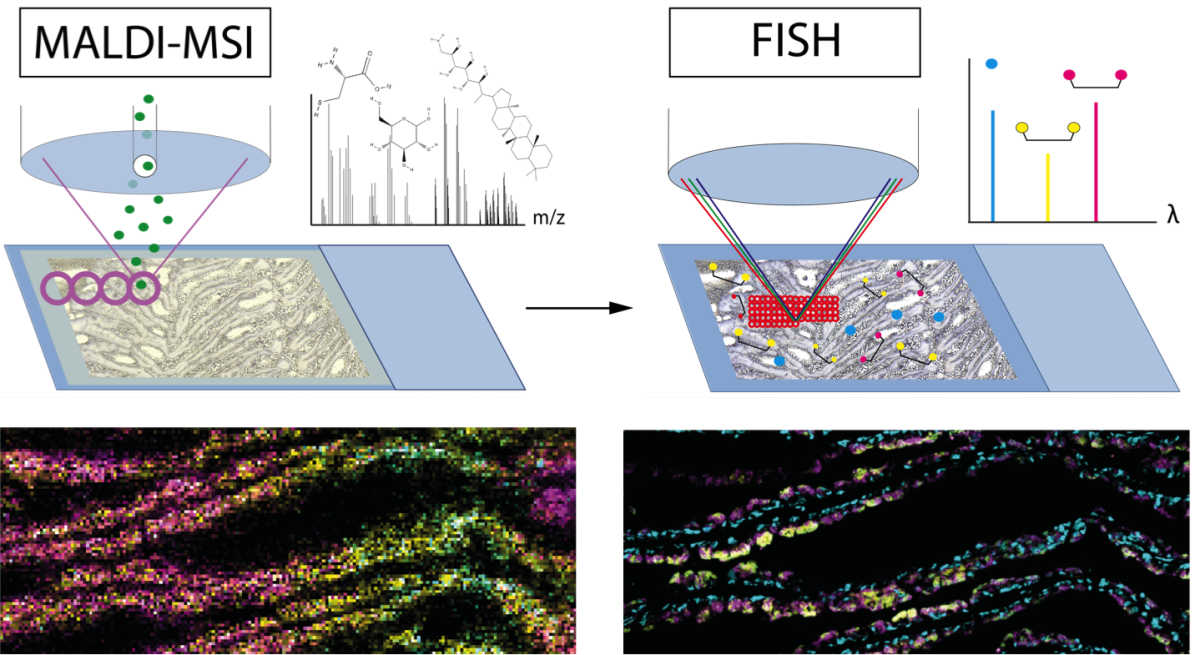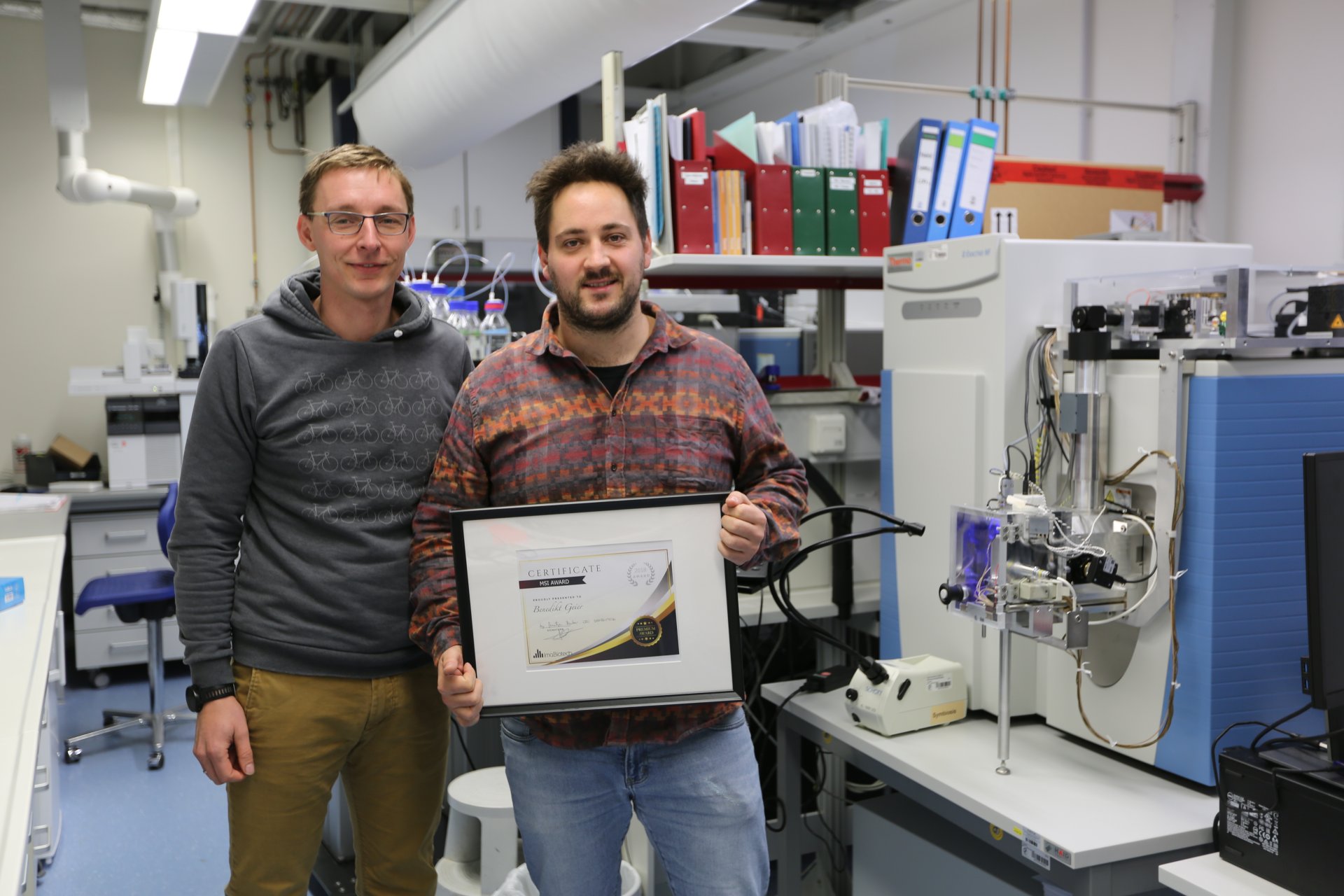- Press Office
- Scientist Benedikt Geier wins the MSI Award @ImaBiotech
Scientist Benedikt Geier wins the MSI Award @ImaBiotech
The MSI Award is presented annually by ImaBiotech, an imaging service provider to the pharmaceutical industry, and honors “brilliant ideas or works” that have been achieved using mass spectrometry imaging (MSI) techniques.
Geier receives the award for a so-called "Correlative Imaging Pipeline", which allows studying the same sample or tissue section using several imaging methods. "This enables us, for example, to visualize the partners of a symbiosis using fluorescence microscopy and simultaneously investigating their molecules using mass spectrometry on a micrometer scale", explains Geier.
Geier investigates the close interaction of bacteria and mussels in the deep sea. He is particularly interested in the link of the metabolism and the chemical communication between bacteria and animal. His award-winning combination of methods offers a new perspective to assign the chemical processes to the respective partners of the symbiosis and thus to understand their role within the symbiosis.
"I am very pleased and honoured to be the winner of this year's MSI Award," says Geier. "That would not have been possible without my colleagues and friends and their constant support. I would especially like to thank Manuel Liebeke for his excellent supervision and our department head and institute director Nicole Dubilier for her constant support throughout our many adventures during method development".

“Benedikt’s work is opening up new opportunities for us to look into metabolic interactions on cellular scale”, explains Liebeke, head of the Research group Metabolic Interactions. “Our team is using the method to understand how symbiotic microbes live and communicate within an animal, by measuring hundreds of metabolites from a spot as small as a few square micrometres.”
The MSI Award was presented for the fifth time at the MSI conference OurCon, which was jointly organized this year for the first time by the American Imaging Mass Spectrometry Society (IMSS) and the European Mass Spectrometry Imaging Society (MSIS). The conference took place from November 11 to 14, 2018, in Charleston, South Carolina. The award is endowed with 5000 US-Dollars.
